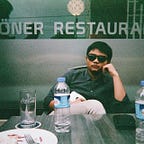Film Journal: The Joy Luck Club (1993)
dir. Wayne Wang
This journal was originally written on November 4, 2015 for a high school English class assignment.
This feather may look worthless, but it comes from afar and carries with it all my good intentions.
The Joy Luck Club is a movie that I would recommend to everyone, not because of how amazing it is but because it is simply a very passionate movie. It tells us about the story of four different moms and their children. These four moms are some Chinese women who used to live in despair while they were in China, and these women were lucky enough that they could manage to survive and moved to America. However, what they experienced would later influence the life of their children.
These were the moms that later would be gathering with each other’s and found something in common: They all loved to play mah-jong; thus they became regular members of a mah-jong club which was named ‘The Joy Luck Club’. In this movie each of the moms (except the main character’s mom who turned out to be dead during the ‘present’ time in the movie) had their own segment and so did the children. All of the moms here told stories about their life in China. We are told that the life of Chinese before the revolution was so much worse than how it was at the ‘present’ time.
Every character in the movie here is equally significant. Though, if I have to choose which character is my favorite, I would say Auntie Lindo. She might be harsh to her daughter Waverly and forced her too much to do things she didn’t want to do. However, having such a painful childhood made her understand about choosing path in life. The thing is that she wasn’t good enough to express that to Waverly, which caused their relationship to get worse.
My least favorite character would be the mother of Auntie Lindo’s ex-husband. She was a rich person. That type of character (rich but wicked and arrogant) always annoy me. She always asked for this and that and blame things to others (this happened after Lindo’s marriage came to a break). The next would be those people who lived in the house of Auntie An Mei’s step-father, they were too mean to her mother.
However, in certain cases, the way this movie show its attitudes towards certain things was performed in a way that is overly dramatic. For instance things like the Chinese government, Chinese culture (pre-revolution era), gender inequality, culture clash etc. they were presented as wicked as possible. That is somehow a bit hyperbole, though this opinion is very personal and I don’t think some people who have watched this movie would think similarly.
But the thing with the movie is that it is not merely a story about how pathetic china was back then, how good it is to live in such a liberating country like America, if you think that way then you don’t actually get the point about this movie. Yes, culture, politics, and etc. do affect someone’s life, but this movie main focus is more on the personal side: about parents and children relationship. The similarities among all the stories are that each story shows how the parents' decision would affect the children’s life (and so does the other way around), and about how hard it is for the parents to truly understand what their children are doing with their life and vice versa. These stories successfully make this movie a very universal movie.
